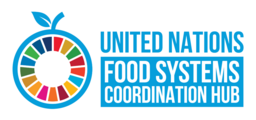COP29: Empowering Transformation - The Role of Multi-Stakeholder Approach in Food Systems and Climate Action
Food systems contribute to over one-third of greenhouse gas emissions, are responsible for up to 80 percent of biodiversity loss, and consume as much as 70 percent of freshwater resources. Increasing instances of extreme weather and climate events have exposed millions to acute food insecurity and reduced water security, contributing to inequitable and harmful food systems. In the same way, climate change is deeply affecting food systems, with around 40% of global agriculture dependent on rainwater, leaving dry regions particularly vulnerable to worsening droughts (FAO, 2020). Additionally, biodiversity loss poses a serious threat, as climate change endangers 25% of crop and livestock species, reducing both diversity and resilience within food systems (FAO, 2019). Over the past decade, these pressures have contributed to the migration of more than 40 million people due to environmental degradation, impacting food security in host regions (FAO, 2021) and extreme weather has increased staple food prices by 20% in the last decade, making food access harder for vulnerable populations (IPCC, 2019). These factors highlight the urgent need for climate-resilient food systems practices and policies. Building on outcomes from UNFSS+2 and COP28, this side event will explore how stakeholders beyond government—particularly from the private sector and civil society—are supporting national efforts to align food systems transformation with climate action, emphasizing the Convergence Initiative pilot countries. The event will showcase national and regional progress, with insights from leading pilots that exemplify integrated approaches to sustainable resource management and climate-aligned food systems transformation, ultimately contributing to the SDGs and Paris Agreement. The event aims to examine the role of multi-stakeholder initiatives and the broader support ecosystem in aligning food systems transformation (FST) with climate action (CA). Through platforms like the UN Food Systems Coordination Hub’s Stakeholder Engagement and Networking Advisory (SENA) group, Stakeholder Advisory Committee (SAC), and key initiatives such as the Youth Leadership Programme and Corporate Accountability, it will highlight diverse collaborations across government, private sector, youth, and civil society. This event will also examine how these coordinated efforts at global and national levels contribute to resilient, sustainable food systems and support climate goals. Discussions will focus on integrating food systems into country climate agendas—such as through the NDCs 3.0—while highlighting the importance of inclusive, transparent, and accountable multistakeholder platforms in tackling challenges like food insecurity, resource management, and climate resilience, especially within Convergence Initiative pilot countries.


